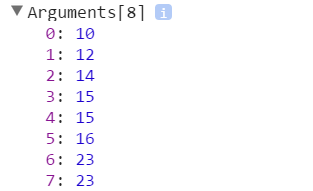设计模式——各种继承方式
一、原型继承
B.prototype=new A; 子类的原型等于父类的一个实例
把父类A中私有的属性和公有的属性都继承过来,变为子类B中公有的属性
function A() {
this.x = 100;
}
A.prototype = {
constructor: A,
getX: function () {
console.log(this.x);
}
};
function B() {
this.y = 200;
}
B.prototype = new A;
B.prototype.constructor = B;
二、call继承
在子类B的函数体中,把父类A当做普通函数执行,并且让父类A中的this变为子类B的一个实例,这样就相当于把父类A中的所有的私有的属性都增加给子类B的实例了
只能把A中私有的继承过来,当做B中私有的,公有属性的无法进行处理
function A() {
this.x = 100;
}
A.prototype = {
constructor: A,
getX: function () {
console.log(this.x);
}
};
function B() {
this.y = 200;
A.call(this);//-->A.call(b)
}
var b = new B;
三、冒充对象继承
在子类B的函数体中,先获取父类A的一个实例,然后遍历这个实例中的所有属性,把所有的属性依次赋值给子类B的实例的私有的属性
把A中公有的和私有的都变为了B中私有的
function A() {
this.x = 100;
}
A.prototype = {
constructor: A,
getX: function () {
console.log(this.x);
}
};
function B() {
this.y = 200;
var temp = new A;
for (var key in temp) {
if (key !== "constructor") {
this[key] = temp[key];
}
}
// this.temp = new A;
// for (var key in this.temp) {
// if (key !== "constructor") {
// this[key] = this.temp[key];
// }
// }
// delete this.temp;
}
var b = new B;
console.dir(b);
四、混合模式:原型模式+call模式
A中私有的在B中私有的和公有的都存在了,A中公有的在B中公有的
虽然A中私有的重复了,但是没有太大的影响,如果非要私有的就是私有的,公有的就是公有的,我们只需要自己在编写一个程序把私有的删掉即可
function A() {
this.x = 100;
}
A.prototype = {
constructor: A,
getX: function () {
console.log(this.x);
}
};
function B() {
this.y = 200;
A.call(this);
}
B.prototype = new A;
B.prototype.constructor = B;
//将B公有中继承了A私有的删除掉,以下可以不写,除非你有强迫症
B.prototype.delPrivate = (function () {
var a = new A;
for (var key in this) {
if (a.hasOwnProperty(key)) {
delete this[key];
}
}
return null;
}).call(B.prototype);
var b = new B;
console.dir(b);
五、中间类继承:在IE下不兼容、我们一般用它只处理内置类
function sum() {
arguments.__proto__ = Array.prototype;
arguments.sort(function (a, b) {
return a - b;
});
return arguments;
}
console.log(sum(12, 23, 15, 23, 14, 15, 16, 10));




 浙公网安备 33010602011771号
浙公网安备 33010602011771号